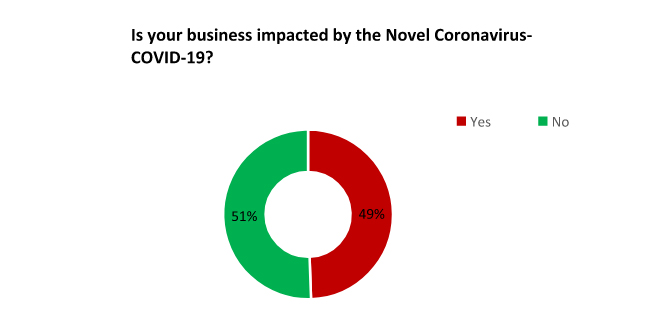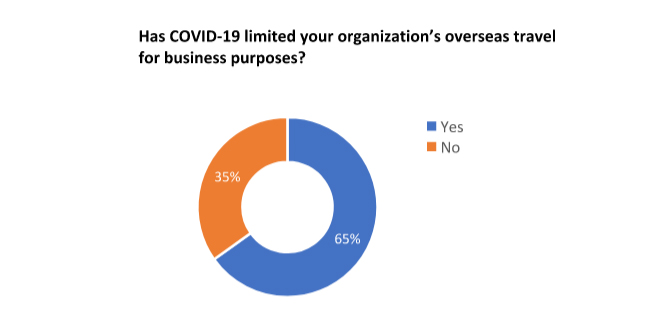By the Economic Intelligence Unit of the Ceylon Chamber of Commerce:
The outbreak of the Novel Coronavirus (COVID-19) is having its toll on the global economy with many economists now expecting a larger impact than the SARS outbreak in 2002-03. The outbreak is lowering China’s GDP growth expectations in the first quarter to 4.5%, a marked slowdown from the 6% recorded in the last quarter of 2019. The slowdown in growth is also weighing in on global oil demand given China is the second largest oil consumer. The International Energy Agency is forecasting a decline in the first quarter, making it the first quarterly fall in global oil demand in over a decade.
The implications for Sri Lanka are also important to understand given the trade and tourism exposure to the Chinese economy and the overall disruption to global supply chains. In 2019, China emerged as the leading import partner for Sri Lanka accounting for 21% of total imports. Chinese tourists were the 3rd highest source market for tourism arrivals in 2019. In this backdrop, the Ceylon Chamber of Commerce ran a poll amongst its member to understand the business impact so far from COVID-19.
49% of the firms that participated in the survey stated that their businesses had been impacted by COVID-19 (Refer Chart 1). 60% of the members expressed that their sales had not been impacted due to the outbreak in the last three weeks compared to the same period in 2019 (January 24th -February 14th period). However, 40% of the survey responders stated that they had a sales decline (ranging between 0-20%, 20-40%, 40-60% and over 60%) due to the impact of COVID-19 in the same period (Refer Chart 2).
Chart 1

Chart 2

The disruption to supply chains and travel is the key concern that policymakers are trying to tackle. In this regard, 43% of the survey respondents expressed that there was a slowdown in imports from China while 27% felt that there was no impact yet but are expecting supply disruptions in the next few weeks (Refer Chart 3). 65% of the members stated that their organization’s overseas travel for business purposes had been limited due to COVID-19 (Refer Chart 4). In this regard, members expressed that there were cancellations of prospective meetings and events in the Asian region. The overall impact on inbound and outbound travel was a key concern amongst the survey respondents.
Chart 3

Chart 4

The impact from the delay in shipments of certain raw material imports from the region was a key insight from the survey. Despite this, certain respondents stated that inventories were stocked up in preparation for the Chinese New Year which could mitigate the slowdown in shipment delays. However, the impact for the months of March and April will need to be carefully monitored in terms of time delays and costs. Survey respondents were also concerned with regards to the business impact of misinformation related to COVID-19 developments.
Despite the uncertainty, there is also an opportunity for countries like Sri Lanka to benefit with trade and supply chain realignment. In this regard, survey respondents highlighted the need for policymakers to provide that conducive environment for export growth.
